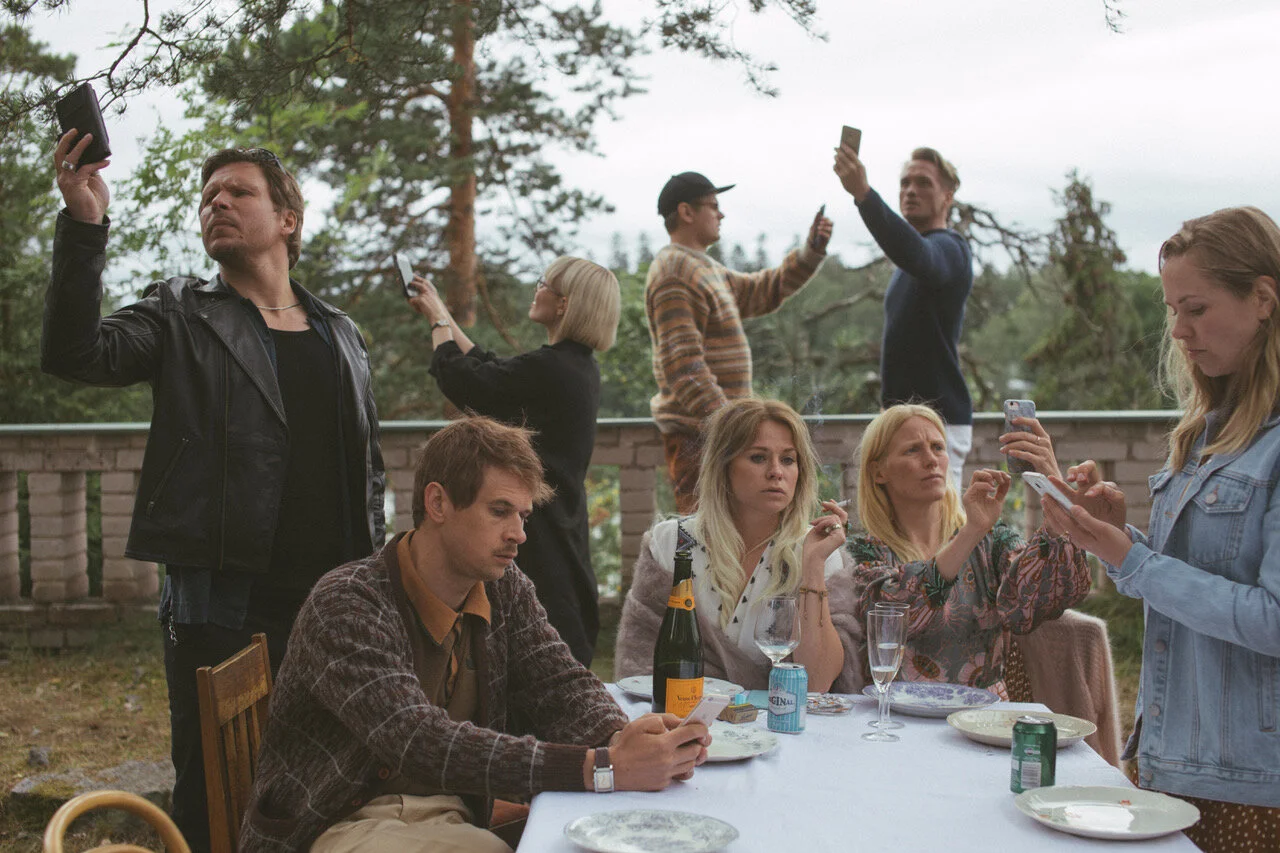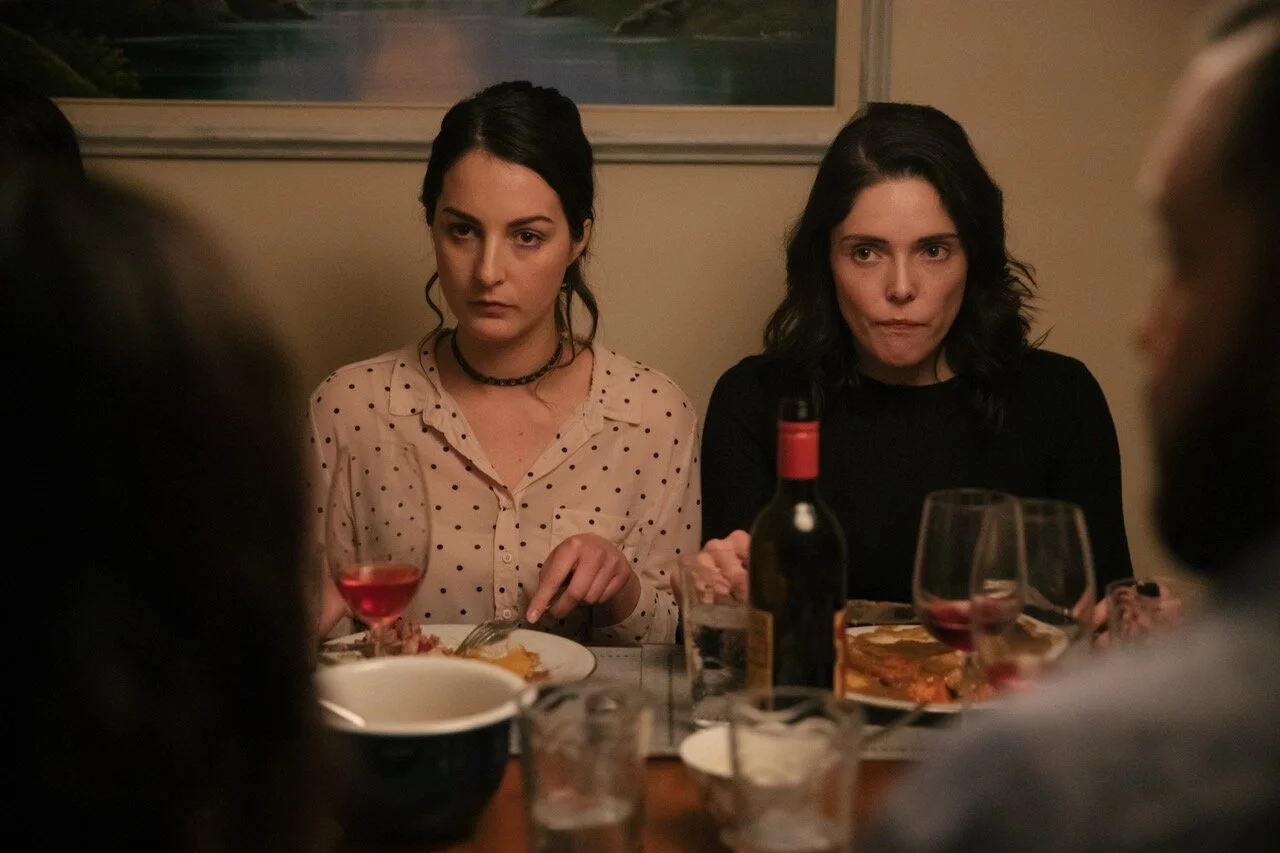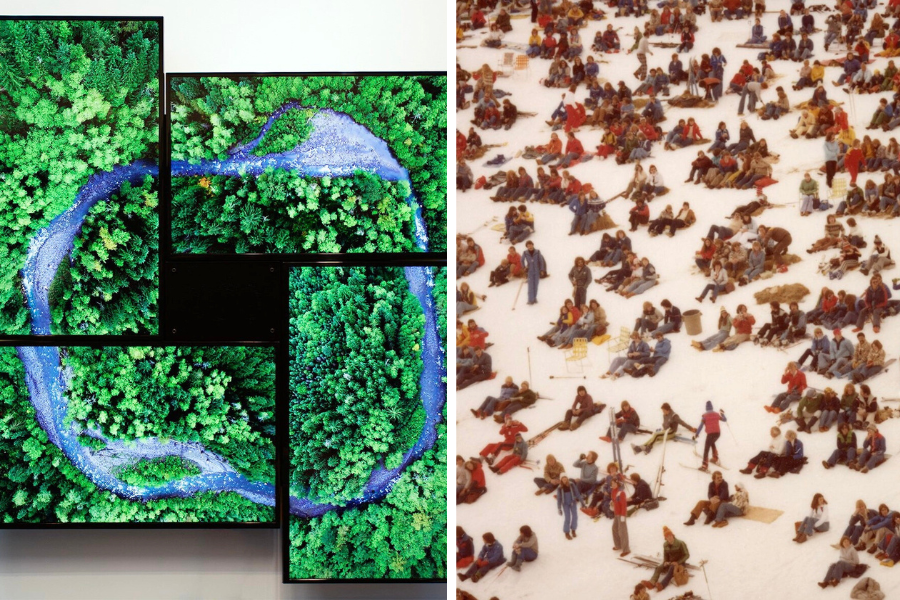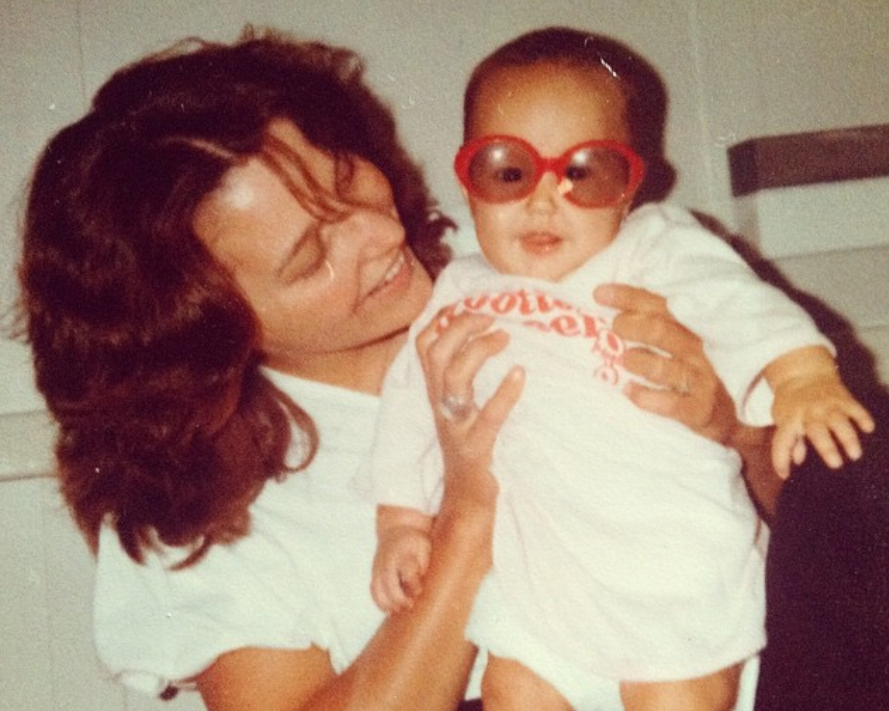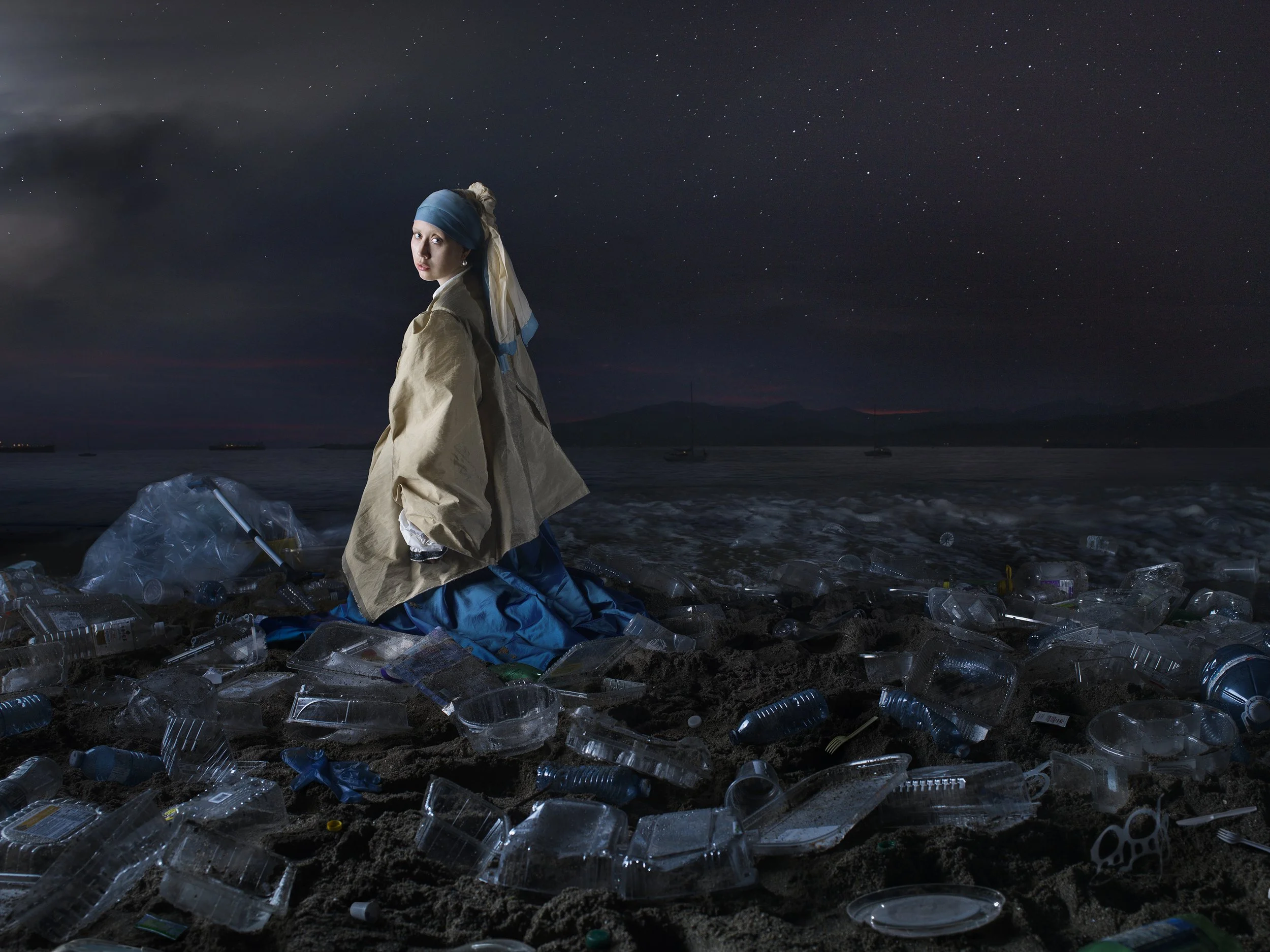Stir Cheat Sheet: 4 female-helmed flicks to stream at Victoria Film Festival
A fight with U.K. social services, a boozy trip to a Finnish cottage, and a sleekly scary warning about AI
Listen was Portugal’s entry into the Oscars—until it was disallowed for having too much English to be considered for Best Foreign Film.
YOU DON’T HAVE to hop on a BC Ferry to get to the Victoria Film Festival this year—not that Dr. Bonnie would want you to. The fest leaps online from February 5 to 14 with 50 features and 23 shorts.
Perhaps most notable about the fest this year is that about half of those offerings are by women. Here are a few of the female-helmed works worth checking out.
Listen (by Ana Rocha de Sousa, UK/Portugal)
Ana Rocha de Sousa’s moving film made news in December when the Academy decided to reject it as Portugal’s submission for Best Foreign Film Oscar. The reason? More than half its dialogue is in English.
That’s because the story focuses on a loving but poor family of Portuguese immigrants who get caught in Britain’s rigid forced-adoption system.
A couple (Lucia Moniz, best known as Colin Firth’s Portuguese love interest in Love, Actually, and Ruben Garcia) struggle to raise three kids—a baby, a young girl who’s deaf, and a teen boy—in London’s East End. Social services is keeping a close eye on them. And it’s not as if the family is perfect: we follow Moniz’s Bela as she totes her baby to her work as a maid, stopping to shoplift some bread from the corner store. But when her deaf daughter, played in the film’s strongest performance by Maisie Sly, breaks her hearing aid and shows up to school with unexplained bruises, the authorities step in to take the children. It’s the movie’s most unforgettable scene, played with a restraint that will wreck you in its unadorned authenticity.
De Sousa’s critique tends to villainize the social workers and could use more nuance., Still, it finds poetry in its kitchen-sink realism, and it draws a heartfelt indictment of a system marred by language barriers, classism, and racism, not to mention a rigid law that prevents the reversal of forced adoptions.
The Games People Play (Jenni Toivoniemi)
A treat for anyone coming off Dry January, not to mention those longing to travel, The Games People Play transports you to a charming cottage in Finland’s archipelago. There, a bunch of old friends are reuniting to, well, get shitfaced. The schnapps, champagne, and beer flow from morning to midnight-sun wee hours. The nominal excuse for the party: it’s Mitzi’s (Emmi Parviainen) 40th birthday, but thanks to a split from her husband, she’s in no real mood to celebrate.
Some have compared the flick to a Finnish Big Chill, but it’s much younger and more raucous than that, its humour sharpened to a nice, Nordic edge. Like all benders, it starts fun but spins out of control. “This group has the tendency to bring out the worst in people,” one observes. The old pals have a long history, sexual sparks still fly between them, and the characters are colourfully drawn—from the class clown with a penchant for Poison to the outsider one of the women brings along, a Swedish boyfriend starring in a new American “Viking show”. They’re all smart, their booze-fuelled conversations spanning everything from Chernobyl to #metoo.
It’s never too heavy though, just the kind of escapist fun that suits the 11th month of lock-in. And just wait till the karaoke machine gets fired up. Like that even more excellent Northern European hit Another Round, the film is a sobering reminder that it’s always a good time until it isn’t. And that Caesars may not be the breakfast of champions.
Emily Bridger and Rhiannon Morgan in Little Orphans.
Little Orphans (Ruth Lawrence, Canada)
Strong performances make this Newfoundland story of three troubled sisters well worth a look. Janet (Marthe Bernard) is getting married in St. John's, and Kay (Rhiannon Morgan) and Gwen (Emily Bridger, who also penned the script) come back to town for the ceremony.
The film captures the complex love-hate, push-pull forces of sibling relationships. But it’s really about what the bracing experience of returning home as an adult. Gwen has been able to avoid her past and her unresolved problems by moving to Toronto, but when she goes back, they’re waiting for her. In these sisters’ cases, they’ve never really dealt with their absentee mother, a flake who might never arrive at her own daughter’s nuptials, but whose legacy hangs over everyone. Occasionally the dialogue is stiff, but the relationships always feel painfully real.
St. John’s is like another character in the movie, embracing but also confining the sisters in its wintry, small-town embrace—but never in a twee, tourism-ad way.
iHuman charts out our Terminator-like future.
iHuman (Tonje Hessen Schei, Norway)
What is so terrifying about Norwegian director Tonje Hessen Schei’s slick new documentary on artifical intelligence is not just what is being said—“We are setting the stage for something that transcends us”; “A new form of life is emerging”—but who is saying it.
She gathers a dizzying array of the world’s top AI computer scientists, as well as human rights lawyers and tech journalists—people who know a lot more about the subject than you or me. And they are all pretty much carrying messages of doom. Among the warnings: “Privacy is gone.”
Stylishly interweaving the interviews with cyberlike animated graphics and dreamlike overhead shots of freeways or tracking shots through giant computer brain centres, Schei is able to join the scary dots of big data, fake news, driverless cars, corporate monopolies, algorythmic surveillance, and weapons with their own brains. One compelling scientist likens it all to a train hurtling down a dark tunnel, while we sleep at the wheel.
The point is not so much whether we’ll ever reach a Terminator-like apocalypse, but that we’re already on our way there. Beings are basically here; “their goals have to be aligned with ours”, Swiss “father of AI” Jürgen Schmidhuber warns us calmly. Not for the anxiety-prone.



